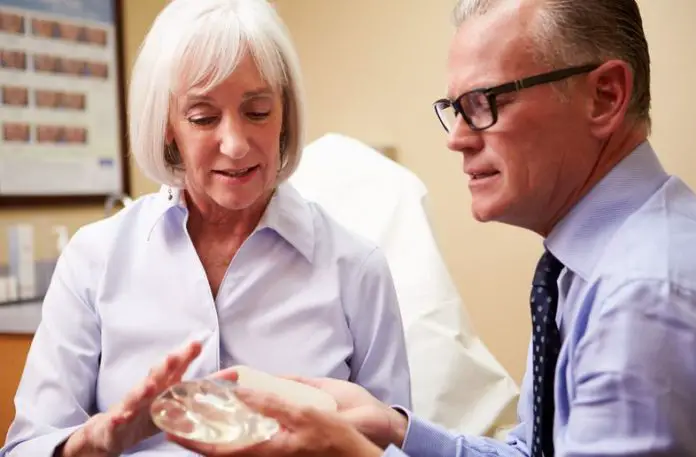Like all surgical procedures, breast implants are a potential source of post-surgical complications such as inflammation, redness, pain, infections, and bleeding.
However, breast implant complications may be avoided if you choose the right methods and arm yourself with the knowledge of what these complications entail. So here’s a brief overview of potential breast implant complications and how to avoid them:
Capsular Contracture: This is a condition in which the scar tissue or capsule that forms around the implant tightens and puts pressure on the breast implant.
Capsular contracture is more common in cases of sub-glandular placement (behind the mammary gland and on top of the chest) of the implant.
Symptoms of capsular contracture range from mild discomfort to acute pain, distorted shape, or visibility and movement of the implant.
For particularly severe cases, you will require additional surgery, which may even include replacement of the implant.
However, there is no guarantee that capsular contracture will not recur after additional surgery.
So what does one do to avoid it? Obviously, not all of it is in your hands, because there will be little you can do about possible contamination during implantation, development of extra fluid around the implant (seroma) and internal bleeding (hematoma).
However, certain lifestyle factors like smoking can also cause capsular contracture, and you can make sure that the implant is placed below the chest muscle instead of above.
If your surgeon says this is unachievable, perhaps you could reconsider your decision to go in for a breast implant just now.
If you wish to try non-surgical treatment, you will have to take a course of prescription antibiotics and Vitamin E tablets. Actually, Vitamin E is more a preventive than a cure, because it helps keeps the tissue soft.
Rupture: Saline breast implants may deflate when the saline solution leaks out either through a valve or a crack in the implant shell.
You will notice a reduction in the size of your breasts or distortion in the shape if a rupture has occurred.
However, there is no telling when a rupture will occur it could be as early as six months or as late as several years.
What causes a rupture or deflation? Causes range from damage by surgical equipment during surgery, overfilled or under-filled implants, capsular contracture, or excessive physical strain.
So one of the most obvious ways to avoid it is to go easy on too-intensive physical activity. However, some implants may simply deflate or rupture owing to time-inflicted damage. And once a rupture occurs, you may have to have the implants removed and replaced.
Pain: You may experience the pain of varying degrees after breast implant surgery. Mostly the causes are inappropriate size, faulty positioning, defective surgery, or capsular contracture. Should you experience acute pain, see your surgeon immediately.
Hematoma/Seroma: In plain terms, a hematoma is a blood clot inside a body cavity, and a seroma is a collection of serum.
With a breast implant, you may sometimes experience a hematoma or seroma around the implant or the incision after the surgery.
In such cases, hematoma and seroma may cause infection, capsular contracture, inflammation, and pain.
While you don’t need to worry in case of small hematomas and seromas, which the body absorbs, large ones require surgical attention.
Infection: Of course, infection can occur after any surgery, but infections from a breast implant surgery are harder to treat than those in other body tissues.
The first recourse is antibiotics, but if they fail to do the trick, the implant may have to be removed and replaced once the infection is eliminated.
Toxic Shock Syndrome: In very rare cases, some women develop Toxic Shock Syndrome, a life-threatening condition, after breast implant surgery.
Symptoms include fever, excessive diarrhea, nausea, and dizziness. If these occur, see a physician immediately.
Necrosis: This is the formation of dead tissue around the implant and may prevent proper healing, necessitating surgical correction, or implant removal.
Necrosis also poses the threat of permanent scarring. Causes of necrosis include infection, smoking, chemotherapy or radiation, and intense heat or cold therapy.
Impaired breast-feeding: This is a large gray area because it is yet to be ascertained whether silicone may leak out from the saline-filled silicone shell and mingle with breast milk.
Furthermore, it is known what the impact on the infant is should such a leak occur, though it has been after research that in general, women with breast implants face more problems while breast-feeding than those without.

